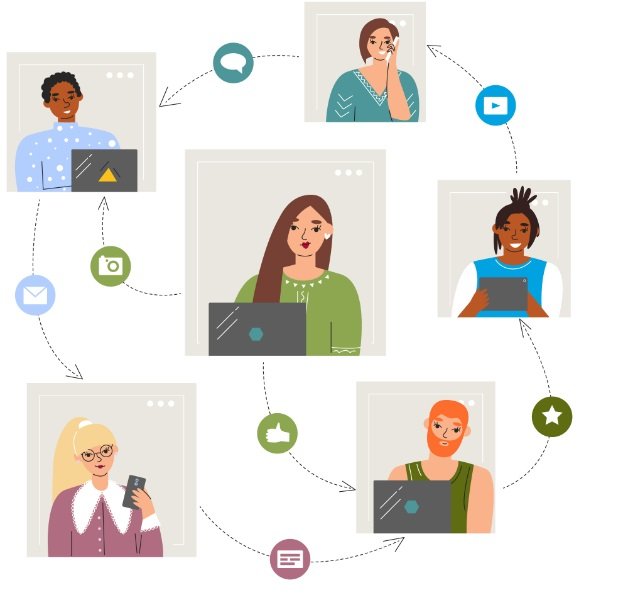Conflict is inevitable in any workplace, arising from different perspectives, goals, and personalities. While it’s natural for people to have varying opinions and priorities, unresolved conflicts can harm team dynamics and overall productivity. Recognizing and addressing these conflicts effectively is crucial for maintaining a harmonious work environment and fostering team cohesion. Leveraging software for work can streamline conflict resolution processes by providing structured communication channels and tools for tracking and resolving issues efficiently.
Workplace conflicts can take many forms, from individual disagreements to larger-scale issues affecting whole teams. They can lead to low morale, increased stress, and diminished collaboration, all of which can impair a team’s ability to fulfill its objectives. Mastering conflict resolution skills is a valuable asset for individuals and an essential component of building and sustaining harmonious teams. By addressing conflicts proactively and constructively, teams can transform challenges into opportunities for growth, learning, and improved working relationships.
Understanding the Nature of Workplace Conflict
Workplace conflicts can stem from various sources and manifest in different forms. These conflicts often arise from differences in opinions, values, goals, or miscommunications. Familiar sources of conflict include disputes over resource allocation, differences in work styles, competition for recognition or promotions, and interpersonal clashes. It’s essential to recognize that not all conflicts are harmful; some can be constructive and lead to positive outcomes, such as increased creativity, better problem-solving, and improved decision-making.
Constructive conflicts typically involve disagreements about ideas or approaches and can catalyze innovation and growth. In contrast, destructive conflicts are characterized by personal attacks, aggression, or disruptive behavior that can harm individuals and teams. For example, a constructive conflict might involve a heated but respectful debate about the best strategy for a project, ultimately leading to a more robust solution. On the other hand, a destructive conflict might involve two team members engaging in personal insults during a meeting, damaging their working relationship and team morale. Understanding the sources and types of workplace conflicts is the first step in mastering conflict resolution skills and creating harmonious teams.
Effective Conflict Resolution Strategies
Mastering conflict resolution is a critical skill for fostering harmonious teams. When disagreements emerge, it is critical to have effective conflict resolution procedures in place. Active listening is a crucial strategy that entails paying complete attention to the other party, comprehending their point of view, and validating their emotions. It demonstrates respect and can de-escalate tense situations by making individuals feel heard and valued.
Conflict Resolution Strategies
Empathetic communication is another vital skill that involves understanding and acknowledging all parties’ emotions. Empathy can help build trust and create an atmosphere of collaboration rather than confrontation. Compromise and negotiation are essential tools for finding mutually acceptable solutions. Finding common ground, considering multiple choices, and working together to create a settlement that satisfies all parties to some level are all part of these strategies. When team members and leaders use these conflict resolution tools and approaches, they help to create a more peaceful workplace by encouraging cooperation, trust, and a sense of togetherness among team members.
The Role of Emotional Intelligence
Emotional intelligence is pivotal in mastering conflict resolution for harmonious teams. It involves recognizing, understanding, and effectively managing one’s emotions and those of others. In conflict resolution, EQ is crucial for several reasons. Firstly, individuals with high emotional intelligence can better identify the underlying emotions contributing to conflicts, allowing them to address the root causes rather than merely addressing surface-level issues. This deeper understanding fosters more comprehensive and lasting solutions.
Secondly, EQ enables individuals to manage their emotions during conflicts, staying calm and composed even in high-pressure situations. This emotional self-regulation is invaluable for maintaining productive and respectful communication. Additionally, individuals with strong EQ can empathize with others, seeing conflicts from multiple perspectives and acknowledging the feelings and concerns of all parties involved. This empathy facilitates open and constructive dialogue, making finding common ground and reaching mutually beneficial resolutions easier. Overall, emotional intelligence is a critical skill for conflict resolution, helping to create harmonious teams by promoting understanding, empathy, and effective communication.
Creating a Culture of Constructive Conflict Resolution
Fostering a culture of constructive conflict resolution within organizations is vital for maintaining harmonious teams and promoting growth. To achieve this, leadership support is essential. When leaders prioritize and model healthy conflict resolution behaviors, it sets the tone for the entire organization. Leaders should encourage open communication, demonstrate empathy, and resolve conflict when necessary. They can also provide training programs and resources to equip team members with the skills and tools to navigate conflicts effectively.
Training programs on conflict resolution can help employees develop essential skills like active listening, empathy, and negotiation. These programs can also teach individuals how to identify and address conflicts early, preventing them from escalating into more significant issues. Additionally, organizations can establish conflict mediation resources, such as designated mediators or HR personnel trained in conflict resolution techniques. These resources serve as neutral third parties who can help facilitate discussions and guide teams toward mutually beneficial solutions. By creating a culture that values open communication and provides the necessary support and resources, organizations can address conflicts constructively, leading to harmonious teams and a more productive work environment.
Success Stories in Conflict Resolution
Real-life success stories of teams or individuals who have mastered conflict resolution serve as inspiring examples of the positive impact of effective conflict management. These stories highlight how conflicts, when handled constructively, can lead to growth, improved relationships, and more harmonious work environments. One such success story could revolve around a team that faced a significant conflict but, through open communication, active listening, and compromise, was able to find a mutually beneficial solution. This resolution strengthened team dynamics and led to increased creativity and collaboration, ultimately boosting the team’s productivity and morale.
Another success story might feature an individual who honed their conflict resolution skills and applied them in the workplace. Through empathy and emotional intelligence, this individual was able to de-escalate a tense situation and foster understanding among conflicting parties. This diffused the immediate conflict and created a more inclusive and collaborative work environment. Success stories like these showcase the tangible benefits of mastering conflict resolution, emphasizing that it’s not about avoiding conflicts but addressing them in a way that leads to positive outcomes and fosters harmonious teams.








